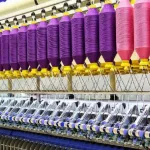 A new breed of NGOs or ‘not-for-profit’ organisations has mushroomed all over the globe claiming to represent the society and influencing consumers’ demands from producers keeping in mind the future needs of the coming generations of world citizens with regard to the fast depleting natural resources. They are working for what is called “sustainable” growth in terms of production, consumption, and work practices. Hundreds of organisations – both commercial and social – have evolved ‘rigorous’ social and environmental best practices encompassing almost all spheres of human activities and insist that consumers as well as producers/providers must follow these standards to save the planet from extinction. These organisations have their own “certification” the process of evaluation and award of which varies widely. The certification is for a wide ranging areas like fair trade, social and environmental performance, natural, organic or green production, carbon foot print, safety, sustainability and numerous other activities. The final outcome is expected to be the overall improvement in the quality of life in our communities and the future generations.
A new breed of NGOs or ‘not-for-profit’ organisations has mushroomed all over the globe claiming to represent the society and influencing consumers’ demands from producers keeping in mind the future needs of the coming generations of world citizens with regard to the fast depleting natural resources. They are working for what is called “sustainable” growth in terms of production, consumption, and work practices. Hundreds of organisations – both commercial and social – have evolved ‘rigorous’ social and environmental best practices encompassing almost all spheres of human activities and insist that consumers as well as producers/providers must follow these standards to save the planet from extinction. These organisations have their own “certification” the process of evaluation and award of which varies widely. The certification is for a wide ranging areas like fair trade, social and environmental performance, natural, organic or green production, carbon foot print, safety, sustainability and numerous other activities. The final outcome is expected to be the overall improvement in the quality of life in our communities and the future generations.
The consumers are increasingly being influenced by the public awareness (or marketing) campaigns of these new generation of organisations of the 21st Century. In the process, their expectations and demands are undergoing a slow and steady change. The whole new concept of saving the earth and preventing the abuse of workers and nature has become so popular and effective that it has redefined the factors of success in business. In fact, these very certifications have become new marketing tools for today’s businesses. A large number of global corporations have already put in place their future plans to cater to the anticipated consumer demands in the future that might crop up as a result of the social needs and or pressure arising from the possibility of resource scarcity.
The governments and businesses are in the process of implementing large-scale resource management initiatives, making concrete moves towards a closed-loop economy with the aim of moving towards a ‘zero waste economy’ – a situation where we reduce, reuse and recycle all we can, and throw things away only as a last resort. The new standards of transparency call for full disclosure of all the sources of procurement in addition to details of products and processes used in the manufacturing process and details of the steps taken to fulfill various social and environmental obligations. The trend for transparency of supply chains has already begun. In future, it might become mandatory for companies and product manufacturers to report the non-financial impacts caused by them, too.
Today’s consumers are not only more demanding in terms of the product features and availability, but also expect the manufacturer to act in the best interest of the broader society, and for the benefit of our long term resource availability. Already, a large number of companies have started preparing for the future consumer’s needs, and to see how their business will match those demands.
Some of the future production and consumption trends predicted are : rapid increase in the consumption of nonwovens & technical textiles, hygiene products, wipes and medical products; 3D-printing for household goods; bioenergy and biofuel, renewable resources and energy savings technologies. The manufacturing sector will have to come out with matching innovations in order to satisfy the future needs of the modern society that would have consumers with totally new tastes, expectations and demands.





